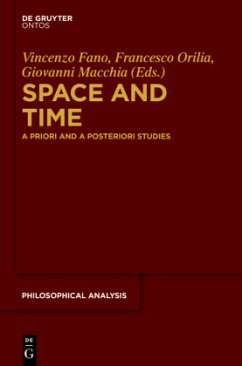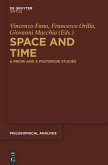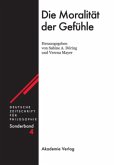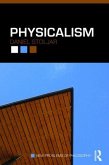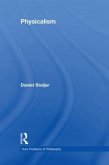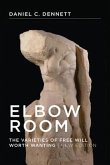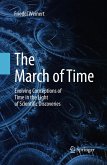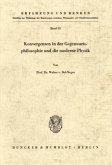This collection focuses on the ontology of space and time. It is centred on the idea that the issues typically encountered in this area must be tackled from a multifarious perspective, paying attention to both a priori and a posteriori considerations. Several experts in this area contribute to this volume:
G. Landini discusses how Russell's conception of time features in his general philosophical perspective; D. Dieks proposes a middle course between substantivalist and relationist accounts of space-time; P. Graziani argues that it is necessary to provide an account of the "synthetic procedures" implicit in the recourse to diagrams in Euclid's Elements, while E. Mares comes to the conclusion that in Euclid's Elements we should treat the parallel postulate as empirical and the postulate that space is continuous as a priori.
M. Arsenijevic/M. Adzic present an important formal result concerning two theories of the infinite two-dimensional continua, which sheds new light onthe current dispute between gunkologists and pointilists; F. Orilia discusses two problems for presentism, one regarding the duration of the present and the other related to Zeno's paradoxes. A. Iacona delves deep into logical matters by focusing on the so-called T×W modal frames in order to deal with the deteterminism-indeterminism controversy. D. Mancuso outlines a non-standard temporal model compatible with time travel, and V. Fano/G. Macchia discuss time travels in the light of an important foundational principle of modern cosmology, Weyl's Principle.
G. Landini discusses how Russell's conception of time features in his general philosophical perspective; D. Dieks proposes a middle course between substantivalist and relationist accounts of space-time; P. Graziani argues that it is necessary to provide an account of the "synthetic procedures" implicit in the recourse to diagrams in Euclid's Elements, while E. Mares comes to the conclusion that in Euclid's Elements we should treat the parallel postulate as empirical and the postulate that space is continuous as a priori.
M. Arsenijevic/M. Adzic present an important formal result concerning two theories of the infinite two-dimensional continua, which sheds new light onthe current dispute between gunkologists and pointilists; F. Orilia discusses two problems for presentism, one regarding the duration of the present and the other related to Zeno's paradoxes. A. Iacona delves deep into logical matters by focusing on the so-called T×W modal frames in order to deal with the deteterminism-indeterminism controversy. D. Mancuso outlines a non-standard temporal model compatible with time travel, and V. Fano/G. Macchia discuss time travels in the light of an important foundational principle of modern cosmology, Weyl's Principle.

